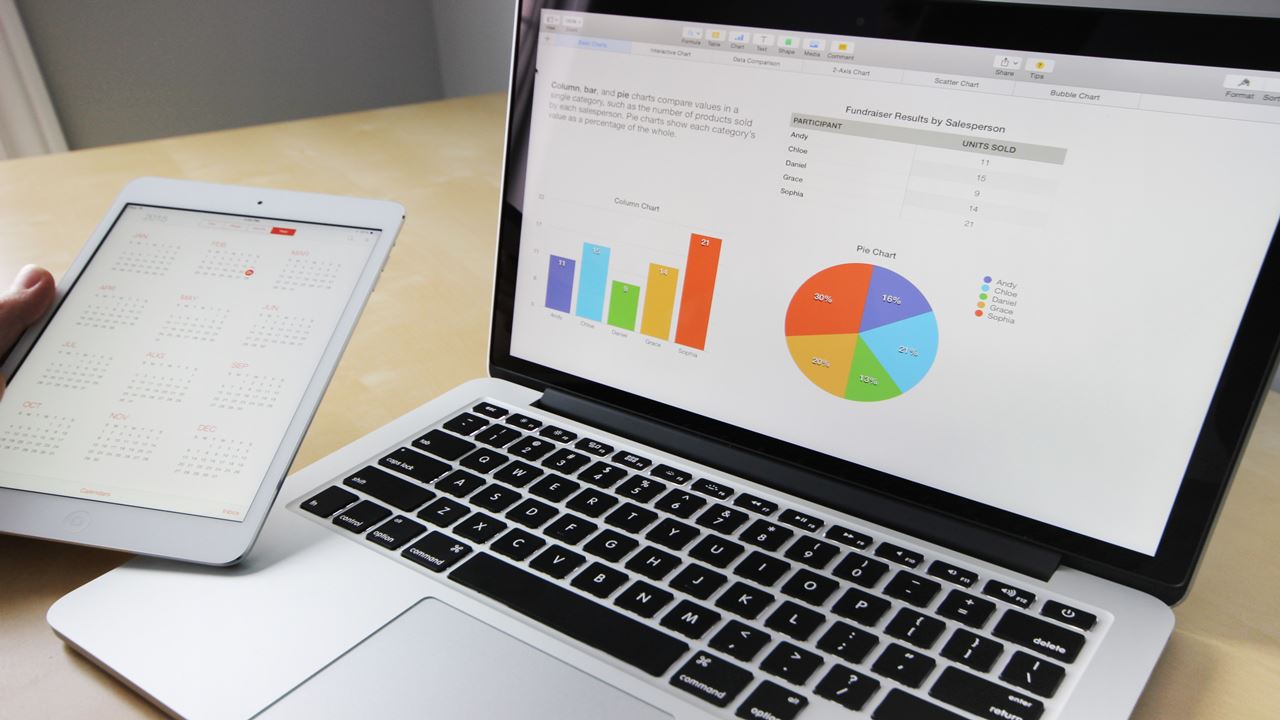Unlock your online potential with UnikBrushes - Your one-stop-shop for expert web development and digital marketing solutions.
Join BloggyTech now and stay ahead in the game with valuable insights and tips on technology, digital marketing, and personal development!
Looking for a list of trendy AI tools that can enhance and save time in your work? Check out ZynoSItes - I'm sure you'll be amazed!
Upgrade your writing game with ZynoInk - the ultimate AI-powered writing tool for students and marketing professionals. Try it now and experience the difference!
If you own a website, it’s essential to understand how your audience interacts with your content. Google Analytics is a free web analytics tool provided by Google that helps you measure your website’s traffic and performance. It provides valuable insights into how people find and use your website, enabling you to make informed decisions about your digital strategy. In this article, we’ll go over some tips and tricks to help you master Google Analytics and get the most out of your data.
Understanding Google Analytics
Google Analytics is a web analytics tool that helps you track and analyze website traffic. It
provides insights into how users interact with your website, including the pages they visit, how long they stay, and how they found your site. Google Analytics also enables you to set goals and track conversions, giving you a better understanding of your website’s performance.
Setting Up Google Analytics
Setting up Google Analytics is easy. First, create a Google Analytics account and add a tracking code to your website. You can do this by installing the Google Analytics tracking code on every page of your website or using a tag management system like Google Tag Manager.
Navigating the Google Analytics Dashboard
Once you’ve set up Google Analytics, you’ll be taken to the dashboard, where you can access all of your website’s data. The dashboard is divided into several sections, including real-time data, audience data, acquisition data, behavior data, and conversion data.
Key Metrics to Monitor
When using Google Analytics, it’s essential to understand the key metrics you should be monitoring. These metrics include:
1. Sessions
Sessions refer to the number of times users are actively engaged with your website. A session starts when a user lands on your website and ends when they leave or are inactive for 30 minutes.
2. Users
Users are unique individuals who visit your website. Google Analytics uses cookies to identify unique users.
3. Bounce Rate
Bounce rate refers to the percentage of users who leave your website without interacting with it further. A high bounce rate indicates that users aren’t finding what they’re looking for on your website.
4. Time on Page
Time on page refers to the amount of time users spend on a page before navigating away from it. This metric can help you understand which pages are engaging users the most.
5. Conversion Rate
Conversion rate refers to the percentage of users who complete a specific action on your website, such as making a purchase or filling out a form.
Advanced Features
Google Analytics also offers several advanced features that can help you get more out of your data. These include:
1. Goals
Goals enable you to track specific actions on your website, such as form submissions or product purchases.
2. Events
Events enable you to track user interactions on your website that don’t involve pageviews, such as clicks on a video or a download button.
3. E-commerce Tracking
E-commerce tracking enables you to track sales and revenue on your website.
4. Custom Reports
Custom reports allow you to create customized reports that focus on specific metrics and dimensions.
5. Segments
Segments enable you to filter your data based on specific criteria, such as demographics or behavior.
6. Multi-Channel Funnels
Multi-channel funnels enable you to track the different touchpoints users have with your website before converting.
7. Attribution Modeling
Attribution modeling enables you to understand how different marketing channels and touchpoints contribute to conversions.
Integrating Google Analytics with Other Tools
Integrating Google Analytics with other tools can provide you with even more valuable insights. Some tools you can integrate with Google Analytics include:
1. Google Tag Manager
Google Tag Manager enables you to manage and deploy tracking tags on your website without having to modify the code.
2. Google Search Console
Google Search Console enables you to monitor your website’s search performance and identify opportunities to improve your search engine rankings.
3. Google Ads
Integrating Google Analytics with Google Ads enables you to track the performance of your ads and optimize your campaigns.
Best Practices for Using Google Analytics
To get the most out of Google Analytics, it’s important to follow some best practices, including:
Set up goals to track conversions.
Use segments to filter your data based on specific criteria.
- Monitor key metrics regularly to identify trends and opportunities for improvement.
- Use custom reports to focus on specific metrics and dimensions.
- Integrate Google Analytics with other tools to get even more insights.
Conclusion
Google Analytics is a powerful tool that can provide valuable insights into your website’s performance. By understanding how to use Google Analytics effectively and following best practices, you can make informed decisions about your digital strategy and optimize your website for success.
FAQs
Q1. Is Google Analytics free?
Yes, Google Analytics is a free web analytics tool provided by Google.
Q2. Do I need technical skills to use Google Analytics?
No, Google Analytics is designed to be user-friendly and accessible to everyone, regardless of technical expertise.
Q3. Can I use Google Analytics to track mobile app usage?
Yes, Google Analytics can be used to track mobile app usage as well as website traffic.
Q4. How can I improve my bounce rate?
There are several ways to improve your bounce rate, including improving your website’s loading speed, optimizing your content for search engines, and improving the user experience.
Q5. Can I track social media traffic with Google Analytics?
Yes, Google Analytics can track social media traffic to your website. You can use UTM parameters to track the source of the traffic.
Unlock your online potential with UnikBrushes - Your one-stop-shop for expert web development and digital marketing solutions.
Join BloggyTech now and stay ahead in the game with valuable insights and tips on technology, digital marketing, and personal development!
Looking for a list of trendy AI tools that can enhance and save time in your work? Check out ZynoSItes - I'm sure you'll be amazed!
Upgrade your writing game with ZynoInk - the ultimate AI-powered writing tool for students and marketing professionals. Try it now and experience the difference!
Best Regards,
Amar



